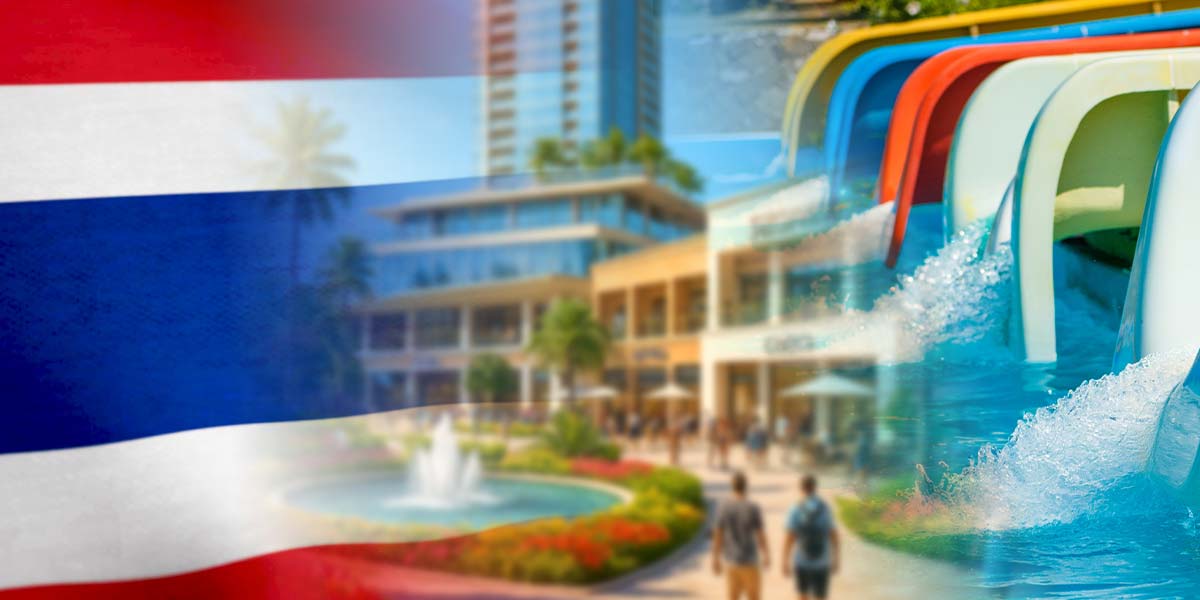Suksit Srichomkwan, Prime Minister’s Deputy Secretary-General, held a press conference under the theme “Thailand Entertainment Complex: A World-Class Metropolis of Experiences for All Thais” at the Ministry of Finance, explaining the opportunities for Thai tourism and reasons behind the government’s pursuit of the establishment of an entertainment complex.
Suksit began by outlining Thailand’s tourist arrivals over the past 15 years, starting from 2010. He noted that Thailand has consistently ranked among the top countries in the world for tourist arrivals. Although numbers dipped during the COVID-19 pandemic, the country bounced back into the global top 10 in 2023-2024.
However, even with high visitor numbers, revenue per capita has not increased, creating a “tourism trap” that the country must overcome. He stressed the need to “create new opportunities” and develop tourism strategies focused on raising per-tourist spending.
To boost tourism income, the government is moving forward with new initiatives and strategies that emphasize year-round tourism and “freshly-created” attractions.
These include plans to bring world-class events to Thailand, such as Formula One (F1), Vijit Chao Phraya, the Grand Songkran Splash Festival, FIVB Volleyball Women’s Nations League, along with value-driven tourism campaigns like THACCA, 5 Must Do in Thailand, health and wellness tourism, and man-made destinations such as Phu Kradueng Cable Car project, cruise terminals, and the Entertainment Complex.
The Deputy Secretary-General explained that the “Entertainment Complex” is just one of several strategies to elevate Thai tourism. More than just an entertainment zone, it is envisioned as an economic driver—generating employment, creating careers, and boosting the country’s annual income, ensuring Thailand will “no longer have a low season.”
The Entertainment Complex, a man-made destination, is projected to include amusement and water parks, museums, a multi-purpose indoor stadium, green spaces for public recreation, areas to promote Thai culture and OTOP products, five-star hotels, innovation centers for startups and future businesses, full-service shopping malls and cinemas, world-class concert halls, large convention and exhibition centers, Michelin-starred restaurants, yacht and cruise terminals, and a casino (under strict regulation).
Thailand is not the first country to pursue such a project; “Entertainment Complexes” are part of a global trend, with anticipated opportunities of around 54 trillion baht per year in the entertainment complex business. For example, annual revenues from integrated entertainment centers in 2022 reached 180 billion baht in Vietnam, 320 billion baht in South Korea, and 430 billion baht in Singapore—clear evidence of economic benefits in neighboring countries.
Suksit underscored that this investment would not burden taxpayers, as it would be funded by the private sector. The expected benefits include higher tourist spending per capita—estimated to increase to 22,300 baht per person per trip—as well as a projected 5-20% annual growth in tourists and a 13% increase in arrivals during the traditional low season, resulting in year-round tourism stability.
He specifically addressed the casino component, emphasizing that it will not be universally accessible and will be subject to stringent legal controls and global standards. Measures will include player protections, entry restrictions, registration and tracking of participants, and the provision of social safeguards such as scholarship funding, CSR initiatives, and prevention and support programs.
Lastly, Suksit highlighted that the investment timeline remains lengthy—the process is still in its early legal phase. The initial project planning is expected to take around three years, and every minute lost is an “opportunity” missed for Thailand.





